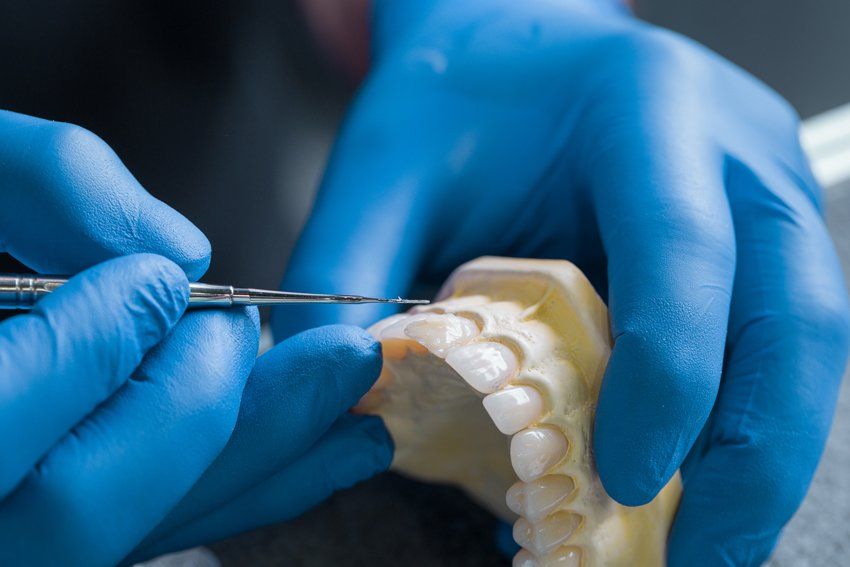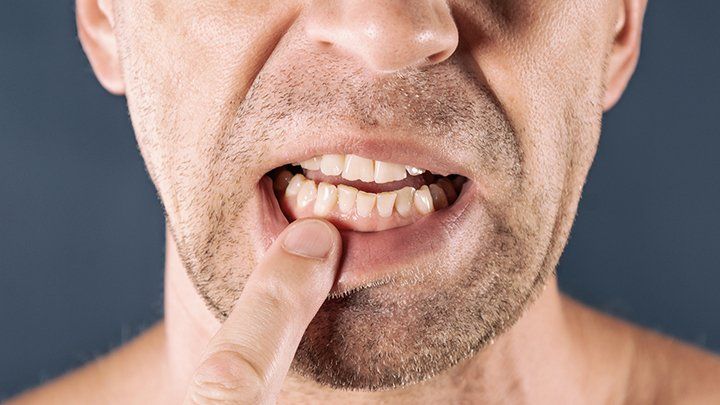Ideally, you would catch every cavity early on when it is easy to treat with a simple filling. However, sometimes decay goes unnoticed and progresses through the outer layers of your tooth into the tooth pulp and roots. At this point, most patients develop a dental abscess, which is a pocket of infection in and around the tooth root.
One solution for a dental abscess is to pull the affected tooth. However, in many cases, your dentist can save an abscessed tooth by performing a procedure called a root canal and then covering the tooth with a crown. Here is a closer look at how a root canal and crown can save an abscessed tooth.
To understand how a root canal can save a tooth, you first need to understand what happens to abscessed teeth when no treatment is performed. The tooth and its roots will continue to decay. Eventually, the tooth may break or fall out on its own. The infection may also move into the jaw bone, causing damage to neighboring teeth.
Of course, the progression of an untreated dental abscess also causes a lot of pain and swelling. In the worst-case scenario, the infection could spread to your blood or brain tissues, potentially with deadly consequences.
If you catch a dental abscess early, your dentist can generally treat it with a root canal procedure. During this procedure, your dentist drills a large hole into the affected tooth. Through the hole, they then extract all of the pulp, which is the tissue that fills your tooth and tooth roots. Next, they insert a rubberized material into the tooth root for stability and fill the access hole like a large cavity.
With the infected tissue gone, your pain and swelling subside, and the tooth decay and jaw damage stop progressing. In some cases, your dentist may prescribe antibiotics to help your body fight off any lingering infectious bacteria.
Following a root canal, the tooth is technically dead; the nerves and blood vessels within it have been removed. However, a dead tooth can stay in the mouth and continue to function for a long time, unlike a tooth that is riddled with infection and decay.
Usually, after your dentist performs a root canal, they will apply a temporary crown to your tooth and have you return a few weeks later to have a permanent crown put into place. The crown is necessary to add an extra layer of protection for the treated tooth.
After the access hole has been drilled, the tooth's structure is weaker, and you're at risk of breaking the tooth or the filling if you bite down too hard on something. The crown also protects the weakened tooth from sugar and bacteria that could lead to additional decay
n some cases, your dentist may not be able to save the infected tooth via a root canal and may instead recommend that you have it extracted. However, when a root canal is an option, it is preferred over pulling the tooth.
Extracting a tooth is hard on the neighboring teeth. Their roots may shift into the empty space, weakening the teeth and leading to jaw pain.
Replacing the missing tooth with an implant prevents this problem, but implants are more expensive than root canals. Also, the implant process takes place in multiple steps over several months. A root canal is comparatively simpler, less painful, and less expensive.
If you are experiencing symptoms of a dental abscess - such as extreme sensitivity to hot and cold, fever, and swelling -
contact Dr. Teri Hernandez DDS. The sooner you receive treatment for an abscess, the greater the chances your dentist will be able to save the tooth with a root canal and crown.
















